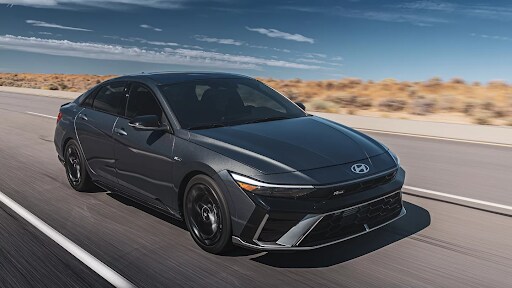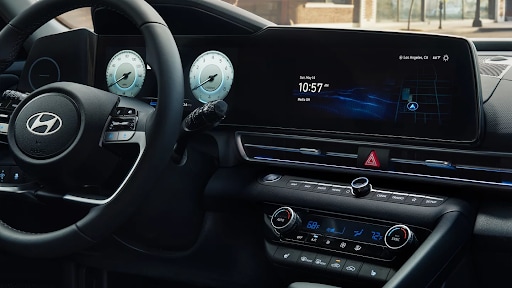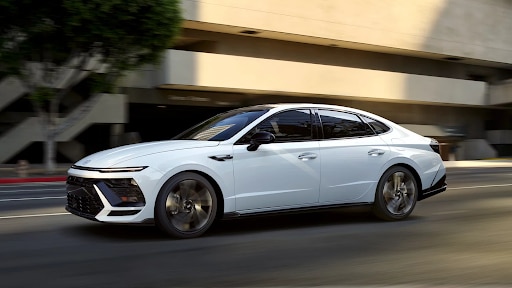
Elantra vs Sonata: Which Hyundai Sedan Fits Your Commute?
Connecticut commuters know that every minute on the road counts—whether it’s the daily drive to work along I-84 or navigating local streets in Waterbury or New Haven. Finding a sedan that delivers comfort, fuel efficiency, and reliability makes all the difference in daily travel. Hyundai continues to stand out with two popular options: the Elantra and the Sonata. Both sedans offer advanced technology, strong fuel economy, and driver-focused comfort that make them ideal for local and highway driving alike. Shaker’s Family Hyundai, part of the trusted Shaker Auto Group, helps drivers across Connecticut choose between these two standouts by understanding how each model fits their unique commute.
Performance and Efficiency for Everyday Driving
When choosing a commuter sedan, the first question many ask is: which model offers better fuel efficiency and performance balance? The Hyundai Elantra is known for its lightweight design and exceptional gas mileage. The standard 2.0-liter engine achieves an EPA-estimated 32 mpg in the city and up to 41 mpg on the highway, making it one of the most efficient compact sedans in its class. For drivers focused on sustainability, the Elantra Hybrid pushes that efficiency even further, reaching up to 56 mpg combined—ideal for long drives between towns or highway commutes from Hartford to Stamford.
The Hyundai Sonata, a midsize sedan, offers more power and a refined ride for those who prioritize highway comfort. Its available turbocharged 1.6-liter engine provides smooth acceleration and confident passing power without sacrificing efficiency. The Sonata Hybrid extends range and economy even more impressively, delivering up to 54 mpg combined. For drivers who value a balance of power and practicality, the Sonata makes longer commutes or frequent highway trips feel effortless.
How Do the Elantra and Sonata Differ in Cabin Comfort and Interior Design?
Comfort plays a major role in determining how enjoyable daily driving can be. The Hyundai Elantra’s cabin feels surprisingly spacious for a compact sedan, with clean, modern lines and high-quality materials that make even short drives pleasant. Available heated seats and dual-zone automatic climate control enhance year-round comfort, while a driver-oriented cockpit layout ensures easy access to controls and infotainment features.
The Sonata builds on this foundation with an elevated sense of luxury and quietness. Its wider body and longer wheelbase create more rear legroom and a smoother ride—perfect for commuters who share rides or frequently drive longer routes. Premium features like ambient lighting, available leather upholstery, and a panoramic sunroof bring upscale comfort to everyday driving. Both sedans integrate Hyundai’s latest infotainment systems, including wireless Apple CarPlay and Android Auto, ensuring drivers stay connected without distraction.
Which Hyundai Sedan Offers Better Technology and Safety for Connecticut Roads?
Hyundai continues to lead in advanced safety technology, and both sedans reflect that commitment through Hyundai SmartSense, a suite of driver-assist features standard across most trims. For Connecticut drivers who face unpredictable weather, heavy traffic, and congested interstates, these features provide vital reassurance.
The Hyundai Elantra includes Forward Collision-Avoidance Assist, Lane Keeping Assist, and Blind-Spot Collision-Avoidance, all designed to enhance awareness and reduce driver fatigue. Its available Smart Cruise Control with Stop & Go helps maintain a safe distance in stop-and-go traffic, particularly useful on busy stretches like I-91 or Route 15.
The Sonata expands this technology with features like Highway Driving Assist and Remote Smart Parking Assist, allowing drivers to park in tight spots without being behind the wheel. A larger 12.3-inch digital display provides more intuitive access to real-time navigation and safety alerts. For drivers who value high-tech convenience and peace of mind during longer commutes, the Sonata’s expanded tech suite makes it a standout choice.

What About Ride Handling and Commuter-Friendly Performance?
The Elantra’s compact size gives it a distinct advantage for urban commuters. Its light steering and tight turning radius make city driving and parking straightforward. Whether weaving through downtown areas or maneuvering into tight parking spaces, the Elantra provides agility without compromising comfort.
The Sonata, by contrast, delivers a more substantial and composed ride. Its suspension tuning absorbs bumps with ease, and its longer frame gives it impressive highway stability. Drivers who often travel between cities or spend long hours on the road will appreciate the Sonata’s calm, planted handling.
For those facing mixed driving conditions—city streets during the week and open highways on weekends—the choice comes down to personal preference: nimble responsiveness in the Elantra or refined smoothness in the Sonata.
How Do Cargo and Interior Space Compare for Commuter Needs?
While both sedans offer ample trunk space, their layouts serve different priorities. The Elantra provides 14.2 cubic feet of cargo capacity, enough for work gear, shopping, or a couple of weekend bags. Split-folding rear seats make it easy to expand that space when needed.
The Sonata’s larger frame offers 16 cubic feet of trunk volume, which translates into more flexibility for longer trips or carpooling. Passengers enjoy increased legroom, especially in the rear, making it ideal for professionals who frequently drive coworkers or clients. Both sedans feature accessible storage areas throughout the cabin, keeping essentials like charging cables and personal items neatly organized for daily use.
Fuel Economy and Cost of Ownership
Connecticut drivers often weigh fuel costs and maintenance when selecting a commuter vehicle. The Elantra’s lower starting price and exceptional fuel economy make it one of the most budget-friendly options in Hyundai’s lineup. Its hybrid version adds long-term value for drivers who log heavy mileage or seek to minimize environmental impact.
The Sonata offers a slightly higher price point but compensates with additional luxury and long-range comfort. Both models share Hyundai’s industry-leading 10-year/100,000-mile powertrain warranty, ensuring peace of mind for years of daily driving. For those who prioritize affordability and efficiency, the Elantra stands out; for those seeking long-distance comfort and advanced features, the Sonata justifies its added cost.
Which Hyundai Sedan Is Right for Your Connecticut Commute?
The choice between the Hyundai Elantra and Hyundai Sonata ultimately depends on commute style and personal preference. The Elantra shines for drivers who need a compact, efficient, and easy-to-navigate sedan that thrives in city traffic. Its excellent fuel economy and advanced tech make it perfect for students, professionals, and anyone looking to reduce their daily driving costs.
The Sonata, on the other hand, fits drivers who want a more refined experience with added power, space, and luxury. It’s ideal for longer commutes, frequent business travel, or anyone who values a quieter cabin and more advanced driver-assist features.

Final Thoughts: Where to Find Your Perfect Hyundai Sedan in Connecticut
Whether your commute is five miles or fifty, Hyundai offers a sedan that fits your driving style. Both the Elantra and Sonata bring dependable performance, cutting-edge safety, and exceptional comfort to every journey. To experience both models firsthand, visit Shaker’s Family Hyundai for a personalized test drive and expert guidance. Their knowledgeable team helps Connecticut drivers find the right Hyundai sedan for their daily routine, ensuring every commute feels smooth, efficient, and enjoyable.
*Penned by AI, polished by humans

